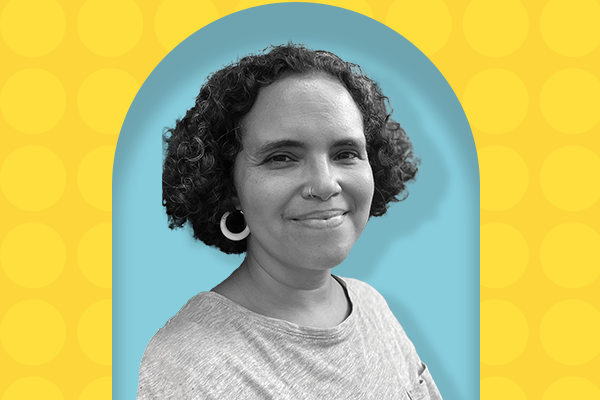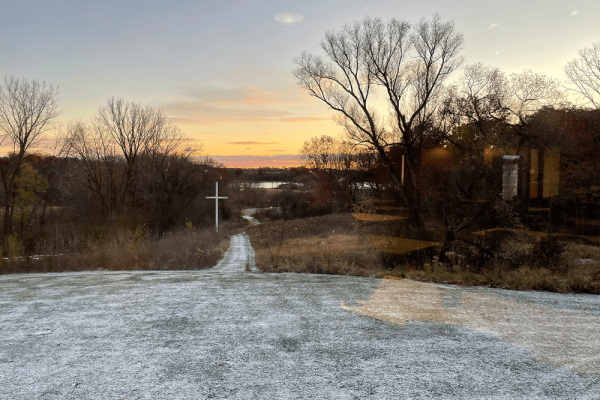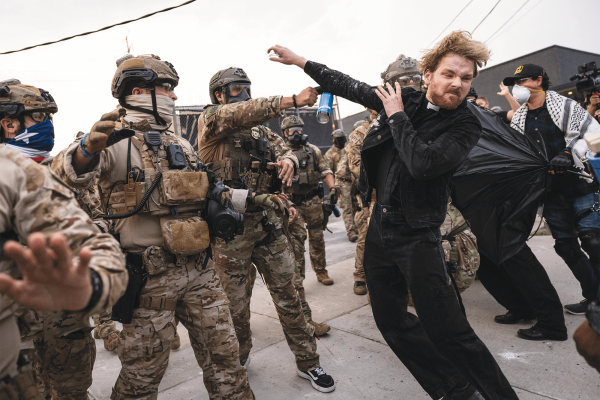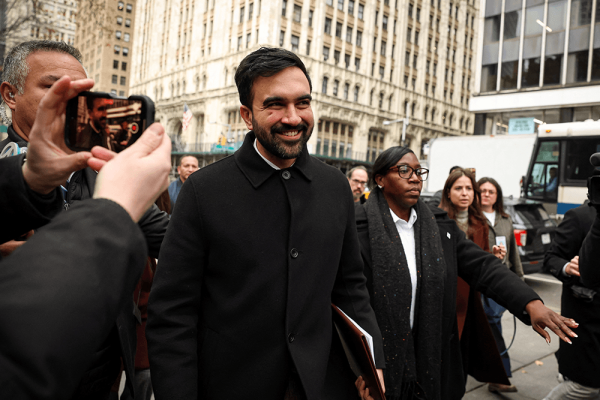IN THE NOVEMBER 2022 issue of Sojourners, culture columnist Josina Guess explores the legacy of Denmark Vesey, Mother Emanuel AME Church, and the stories that resist removal. Guess spoke with editorial associate Liz Bierly about the connection between art and practice, the mentor that impacted her life and writing, and the full-circle moment of being back in Sojourners’ pages. You can read her November column, “Remembrance as Resistance,” here.
This interview has been edited for length and clarity.
Liz Bierly, Sojourners: You previously pursued a BA in fine and studio arts, and now you are working toward an MFA in narrative nonfiction. What led you to pursue these studies, and what does it look like for you to pursue the intersection of those topics?
Josina Guess: In college, I was just captivated by ceramics and by the process of having something that got my hands dirty and centered me every day in the swirl of college life. I think that’s why I majored in art — I could have studio time — but I wasn’t necessarily pursuing a career in the arts. I had been recognizing that words felt like a medium that I could carry with me anywhere I went, and I didn’t need to have a studio or a kiln.
I ended up not really pursuing ceramics, but I think writing was sort of a continuation of that sort of art as practice. When I’m trying to think about what my days are like [now] — like today I moved some goats, picked some cucumbers, and made some kimchi — I think it’s this combination of these real-life practices of gardening and farming and parenting, and then just engaging in and paying attention to what’s going on in the world and writing about it. [I’m] trying to find a balance in my own life of joy and centering, and then also seeing how to respond to the really broken and wounded parts of myself and of the world, and hope that healing comes in all of those practices.
Is there anything you would like Sojourners readers to know about you and the context that you’re coming from as you’re writing? I grew up in Washington, D.C., and I was always aware of Sojourners magazine in my house as a child growing up, so it feels like a bit of a full-circle moment to be able to be in the pages. I’m thankful to be continuing in that tradition that helped to nurture me as a kid.
I will say, I don’t really recognize D.C. anymore; it has changed so much. I left D.C. in 1996, and it’s changed so much in terms of cost of living and everything like that, so I think I also feel like there’s this awareness that the places that we came from aren’t necessarily the same places anymore; it’s just figuring out what we’re becoming and where to go from here. And Sojourners both changed and stayed the same, which is a good thing, and I think that’s a challenge that churches and institutions and families and places all are living with: How do you continue, and also grow and be healthy? I love that concept of thinking about how the places that we came from aren’t necessarily the same places that we once knew.
What is one of your proudest accomplishments as a writer, and why is that something that sits with you? I got to know Valerie Boyd as a mentor, and she died in February [2022]. I think getting taken under her wing in the last few years of her life, she's poured a lot of love and attention into me, and that’s why I started the MFA program that I’m in — because she was the director of it.
There are two things I’d say. One was this feeling of just feeling heard and saying to her, “I don’t see how you can do this; you’re such a busy and accomplished person.” And she would say, “Well, when I get off the phone with you, I’m going to be on the phone with Alice Walker, and she pours a lot into me, and I know that you’re going to pour a lot into the next person.”
Also, she was making an anthology called Bigger Than Bravery: Black Resilience and Reclamation in a Time of Pandemic; it's coming out November 15, 2022. It was a collection of writers that I both knew personally, but also didn’t know and just aspired to be like, and she — when I got COVID, I had a prolonged case of it — she asked if I would want to write about it because that was sort of a missing piece of the anthology. And I said, “Sure, I’d love to write about it.” I wrote an essay that is now in this anthology, and that was one of the last pieces of work that she completed before passing away.
In November, Lookout Books is launching the book at the University of North Carolina Wilmington, and they asked me if I would be there for the book launch in her stead. I just started bawling when I opened that email: To think that my mentor invited me to be part of this book, and now I get to help deliver it to the world, and be able to give a craft talk for aspiring writers, and work with student writing and be the writer in residence for this — and she helped to make that happen. It’s really sad; it’s so hard to lose someone like that. I just miss her, and I wish I could still talk to her, but I think learning to become that person that other people can talk to is what I’m working toward.
Being a writer is so much more than just the “sitting alone at the computer” part. It’s sort of building a community and helping people find their voice, and I’m so glad that she gave me the courage and the bravery to live into this work.
What are some things that bring you joy and that let you come back to yourself? I’m really thankful that where I live joins some property that we have permission to walk through, so I can walk to the river. I think of it definitely as a spiritual practice, both remembering my baptism and remembering the rivers that Black women crossed with their children toward freedom. Just feeling the water over my skin is really refreshing, and I’m thankful to have that access. It rejuvenates me a lot to take my dogs and my kids and my husband, and we jump in the river.
I live in a really small town, but we have a community of friends that have started a small little Quaker worship gathering, and then we have an interfaith gathering once a month. [Both gatherings] have been really renewing to my spirit; I don’t do it every single Sunday, but I appreciate knowing that I can walk or bike there.
The garden and the animals we have has also been great. My father has been splitting his time between our place and Ohio, where he and my mom live, and he helped to put in the garden. Gardening with my dad has also just been a really amazing bonding experience because it’s something that he enjoys so much and something we can do together.
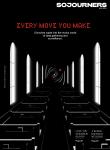
Got something to say about what you're reading? We value your feedback!
